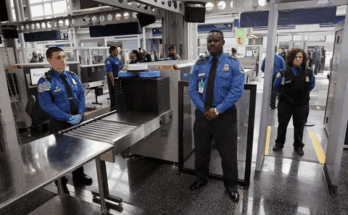Canada Cleaning Jobs
Canada’s bustling cities, sprawling suburbs, and thriving industries rely on a workforce that keeps environments safe, sanitary, and welcoming. Cleaning jobs, often overlooked yet indispensable, form the backbone of public health, corporate productivity, and residential comfort. From hospitals to high-rises, this sector offers diverse opportunities for Canadians and newcomers alike. With post-pandemic hygiene awareness at an all-time high and a growing emphasis on sustainable practices, cleaning jobs in Canada are more critical—and dynamic—than ever. This article explores the types of roles available, industry trends, challenges, and pathways to building a rewarding career in this essential field.
The State of Canada’s Cleaning Industry
Canada’s cleaning sector employs over 500,000 workers, contributing $6 billion annually to the economy. The COVID-19 pandemic underscored the industry’s importance, with demand for disinfection services surging by 300% in 2020–2021. Today, the market continues to grow at 4.2% annually, driven by:
- Urbanization: High-density cities like Toronto, Vancouver, and Montréal require constant upkeep.
- Health Regulations: Stricter cleanliness standards in healthcare, education, and hospitality.
- Sustainability Trends: Shift toward eco-friendly products and green certifications.
- Immigration: Newcomers often enter the workforce through accessible cleaning roles.
Provinces with large service sectors, such as Ontario, British Columbia, and Alberta, dominate job postings. Meanwhile, aging populations in regions like Atlantic Canada fuel demand for home healthcare support, including domestic cleaning.
Types of Cleaning Jobs in Canada
The industry offers roles tailored to diverse skills, schedules, and career goals:
1. Residential Cleaning
- Domestic Cleaners: Work in private homes, performing tasks like vacuuming, dusting, and bathroom sanitization. Often part-time or self-employed.
- Live-In Caregivers: Assist seniors or families with cleaning, cooking, and light caregiving. Requires empathy and reliability.
- Average Pay: 17–25/hour, with tips common in affluent neighborhoods.
2. Commercial Cleaning
- Office Cleaners: Maintain corporate buildings, often during evening shifts. Tasks include trash removal, floor care, and restocking supplies.
- Retail and Hospitality Cleaners: Ensure stores, hotels, and restaurants meet hygiene standards. Fast-paced roles with weekend hours.
- Average Pay: 16–22/hour, plus benefits in unionized positions.
3. Industrial and Specialized Cleaning
- Janitorial Staff: Manage schools, hospitals, and factories. May involve operating heavy equipment (e.g., floor buffers).
- Hazardous Waste Cleaners: Handle biohazards, chemical spills, or crime scenes. Requires certifications like WHMIS and OSHA training.
- Post-Construction Cleaners: Prepare sites for occupancy by removing debris and dust. Physically demanding but well-paid (20–30/hour).
4. Green Cleaning
- Eco-Cleaners: Use non-toxic products and energy-efficient methods. Popular in BC and Ontario, where clients prioritize sustainability.
- LEED-Certified Cleaners: Work in buildings with green certifications, often requiring specialized training.
5. Management and Entrepreneurship
- Supervisors: Oversee teams, manage schedules, and ensure compliance with safety protocols. Salary: 45,000–65,000/year.
- Business Owners: Start a cleaning company; the average annual revenue for small firms is 100,000–500,000.
Requirements for Cleaning Jobs
- Skills and Traits
- Physical Stamina: Ability to stand, bend, and lift for extended periods.
- Attention to Detail: Spotting hidden dirt or safety hazards.
- Reliability: Punctuality and trustworthiness, especially in homes or secure facilities.
- Certifications
- Basic Training: Many employers provide on-the-job instruction.
- Specialized Certifications:
- WHMIS (Workplace Hazardous Materials Information System): Mandatory for handling chemicals.
- First Aid/CPR: Valued in healthcare and senior care roles.
- Green Seal Certification: For eco-friendly cleaning professionals.
- Work Authorization
- Citizens/PRs: No restrictions.
- Temporary Foreign Workers (TFWs): Eligible through the Home Child Care Provider Pilot or Caregiver Programs.
- International Students: Can work up to 20 hours/week off-campus.
- Language Proficiency
- Basic English or French (for Québec) suffices for most roles, though supervisory positions may require fluency.
How to Find Cleaning Jobs in Canada
- Job Boards
- General Platforms: Indeed, LinkedIn, and Glassdoor list thousands of postings.
- Niche Sites: Try JanitorialJobs.ca or CleaningForce for specialized roles.
- Agencies
- Staffing firms like Molly Maid, ServiceMaster, and Pritchard Industries hire for residential and commercial contracts.
- Government Resources
- Job Bank: Canada’s official employment site filters by location and job type.
- Settlement Agencies: Help newcomers access training and placements (e.g., ACCES Employment).
- Direct Outreach
- Approach property management companies, hospitals, or schools with resumes in hand.
- Entrepreneurship
- Launch a business using platforms like Facebook Marketplace or TaskRabbit to attract clients.
Challenges in the Cleaning Industry
- Physical Strain: Repetitive motions and heavy lifting lead to injuries without proper ergonomics.
- Low Wages: Entry-level roles often pay minimum wage (15–16/hour), though specialized cleaners earn more.
- Job Security: Many positions are part-time, temporary, or contract-based.
- Stigma: The work is sometimes undervalued, despite its critical role.
- Automation: Robotic vacuums and autonomous scrubbers threaten some roles, though human oversight remains essential.
Opportunities and Innovations
- Career Advancement
- Transition to supervisory roles or pivot to related fields like facility management.
- Pursue certifications in infection control or biohazard remediation to command higher pay.
- Immigration Pathways
- The Home Support Worker Pilot offers permanent residency to caregivers with qualifying experience.
- Provincial Nominee Programs (PNPs) in Saskatchewan and Alberta prioritize essential service workers.
- Technology Integration
- Use apps like Swept or Janitorial Manager to streamline scheduling and client communication.
- Invest in eco-friendly equipment (e.g., HEPA-filter vacuums) to attract sustainability-focused clients.
- Niche Markets
- Post-Pandemic Disinfection: Ongoing demand for antimicrobial treatments in gyms and schools.
- Aging Population: Senior home support services are booming, particularly in Atlantic Canada.
- Unions and Advocacy
- Join unions like SEIU (Service Employees International Union) for better wages, benefits, and job protection.
Voices from the Field: Worker Stories
Maria, Residential Cleaner in Toronto: “I started cleaning homes after immigrating from the Philippines. Now, I run a team of 10 and earn $65k/year. It’s tough but rewarding.”
Ahmed, Hospital Janitor in Calgary: “My WHMIS training landed me a union job with benefits. I take pride in keeping the ICU safe for patients and staff.”
Léa, Eco-Cleaner in Montréal: “Clients love that I use homemade vinegar solutions. My small business tripled its revenue after going green.”
The Future of Cleaning in Canada
- Sustainability: Expect stricter regulations on chemical use and waste reduction.
- Technology: Hybrid roles combining cleaning with tech maintenance (e.g., smart building systems).
- Workforce Development: Increased investment in training programs to address labor shortages.
Canada Cleaning Jobs
Cleaning jobs in Canada are far more than mops and buckets—they’re opportunities to safeguard communities, build businesses, and contribute to a healthier planet. While challenges like physical demands and wage disparities persist, the sector’s growth and adaptability offer pathways to stability and success. For newcomers, it’s a gateway to Canadian life; for locals, a chance to redefine an undervalued profession.
As the adage goes, “Cleanliness is next to godliness.” In Canada’s evolving landscape, it’s also next to opportunity.
FAQs
- Q: Can I immigrate to Canada through a cleaning job?
A: Yes! Programs like the Home Support Worker Pilot and PNPs offer pathways to PR for eligible workers. - Q: Do cleaning jobs require a college degree?
A: No—most roles require only reliability and on-the-job training. Certifications boost pay and opportunities. - Q: What’s the highest-paying cleaning job?
A: Hazardous waste cleaners and post-construction specialists earn up to $30/hour with certifications.



